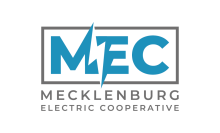Abundance for Whom? - Episode 656 of the Community Broadband Bits Podcast

In this episode of the podcast, Chris is joined again by Sascha Meinrath, Palmer Chair of Telecommunications at Penn State, for a wide-ranging, discussion about the book Abundance by Derek Thompson and Ezra Klein—and what it gets wrong about broadband and public policy.
They dive into the historical failures of corporatist infrastructure models, the rise of regulatory complexity that benefits incumbents, and the dangers of framing government as the problem instead of part of the solution.
From the Kingsbury Commitment to BEAD to trickle-down tech policy, Chris and Sascha explore why bold, community-centered visions of abundance are necessary to deliver real digital equity and structural change.
This show is 39 minutes long and can be played on this page or via Apple Podcasts or the tool of your choice using this feed.
Transcript below.
We want your feedback and suggestions for the show-please e-mail us or leave a comment below.
Listen to other episodes or view all episodes in our index. See other podcasts from the Institute for Local Self-Reliance.
Thanks to Arne Huseby for the music. The song is Warm Duck Shuffle and is licensed under a Creative Commons Attribution (3.0) license


